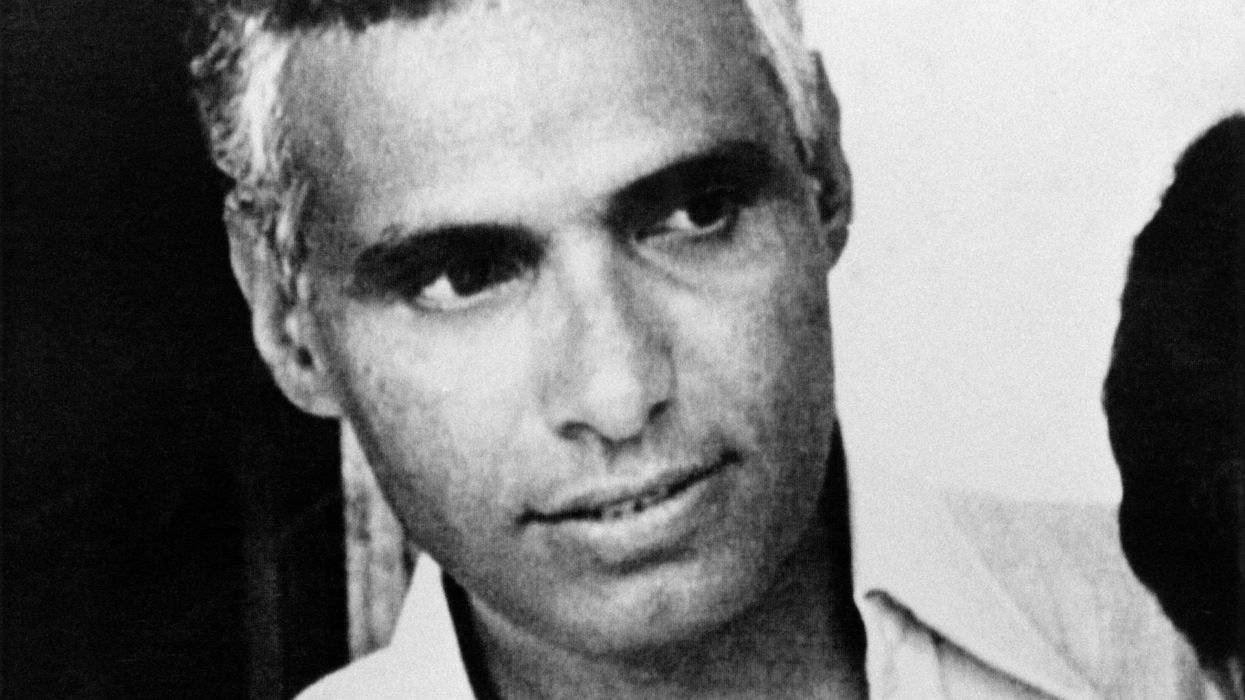Ebrahim Ismail Ebrahim, a veteran of the fight against apartheid who spent years imprisoned on Robben Island alongside Nelson Mandela, died Monday (6) aged 84, South Africa's ruling party announced.
Ebrahim passed away at his Johannesburg home after a long illness, the African National Congress (ANC) said in a statement.
He "was a longstanding member of the ANC, a patriot who served his country in different capacities with humility, dedication and distinction," the party said.
President Cyril Ramaphosa also paid tribute to the "gentle revolutionary".
"I am saddened by the passing of a distinguished comrade and counsellor who devoted his life to the liberation of our country and the resolution of conflicts around the world," he said in a statement.
A largely unsung figure in the chronicles of apartheid, Ebrahim joined the struggle against white-minority rule in his early teens, becoming an ANC youth activist in 1952.
His life followed the arc of the liberation movement - beginning with non-violent protests, becoming a guerrilla fighter, getting imprisoned on Robben Island twice, and eventually joining the democratic government.
Known as "Ebie", he was born in Durban on July 1, 1937. As a child, he saw his father get arrested twice for breaking laws that prevented Indians from travelling freely within South Africa.
By the time he was 13, he was already taking part in liberation politics.
Inspired by Mahatma Gandhi's passive resistance campaigns in India, Ebrahim attended speeches by Albert Luthuli, the ANC leader who in 1960 became the first African to win the Nobel Peace Prize.
He tried joining protest campaigns, but the liberation parties would not let him because of his young age.
As an Indian, Ebrahim initially was not allowed to join the ANC. He instead joined the Natal Indian Congress and became a delegate to the landmark Congress of the People in 1955.
That meeting gathered activists of all races, pulling together a massive public consultation on how South Africans wanted to be governed. The result was the Freedom Charter, now seen as a foundational document underpinning South African democracy.
As with many others in the movement, the Sharpeville massacre in 1960 changed Ebrahim's mind about peaceful resistance. The sight of police shooting 69 protesters dead pushed him to join the ANC's armed wing.
'Assaulted, starved in prison'
He was arrested in 1963 and imprisoned on Robben Island, where he studied alongside Mandela and shared a cell with Jacob Zuma, who would later become president.
"In prison we were assaulted, starved, under-clothed and exposed to bitter cold weather," he wrote later in a memoir.
"We were sworn at and humiliated in the most degrading manner. We broke stones and ate a measly meal.
"For years we were made to stand stark naked for long periods of time in an open courtyard, sometimes in biting cold weather. One of my close friends died of exposure."
Nonetheless, Ebrahim used his prison days to obtain two university degrees.
After his release, he went into exile to rejoin the ANC. But in 1986, he was kidnapped by apartheid agents in neighbouring Swaziland, tortured and then imprisoned again on Robben Island.
Mandela tasked him with consulting fellow political prisoners on the talks that eventually led to the end of apartheid and the transition to democracy.
Ebrahim was freed in 1991 and won a seat in parliament in the first democratic elections.
He later served as a diplomat and mediator in conflicts including between Israel and the Palestinians, Rwanda and the Democratic Republic of Congo, as well as in Burundi, Kosovo, Bolivia and Nepal.
In an interview in June 2021, Ebrahim said he was deeply concerned that the fruits of democracy had not been spread evenly, pointing to deep poverty and unemployment.
But he voiced confidence in president Ramaphosa.
"He continues to take steps to root out maladministration and corruption. We will recover," he said.
And he expressed disappointment in his former cellmate Zuma, who has been charged with a slate of corruption cases.
"I was very close to him and we slept next to each other," he said, however adding that in prison Zuma was "highly disciplined".
Ebrahim often stated how he had been inspired by the Satyagraha (non-violent resistance) style of Mahatma Gandhi.
Condoling his death, human rights organisation #Africa4Palestine acknowledged the role Ebrahim played in the ANC resolution for the immediate and unconditional downgrade of the South African embassy in Israel to a liaison office in 2017.
The Congress of Business and Economics, an offshoot of the erstwhile Transvaal Indian Congress, honoured Ebrahim with a Lifetime Achievement Award in 2018.
Filmmaker Anant Singh said in a tribute, “in all my interactions with Ebie, both locally and abroad, he was always passionate about South Africa and its role in world politics.”
Ebrahim is survived by his wife Shannon, a foreign news writer for the Independent Media group, and two children.
(Agencies)




